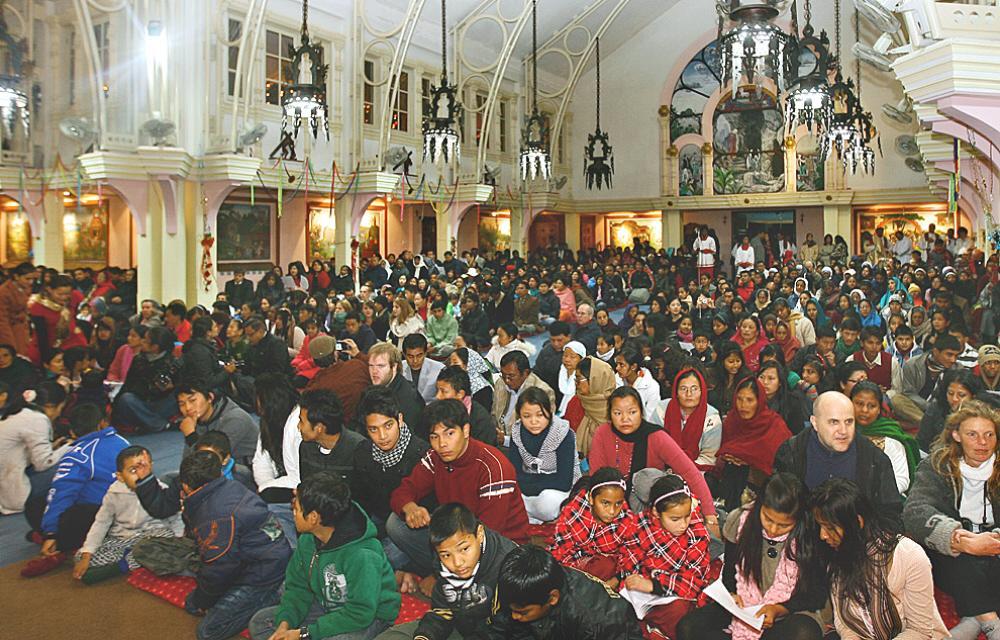Joaquim Magalhães de Castro
In statements to the Fides news agency, Catholic Father Silas Bogati speaks of his experience in the recent unrest that rocked Kathmandu, the Nepalese capital. Apostolic Administrator of the Vicariate of Nepal since January 2025, Silas Bogati found himself in the middle of the protests because, as soon as he landed at Kathmandu airport after a pastoral trip, due to a lack of transportation, he had to walk to his residence, crossing a city teeming with protesters demanding the removal of Prime Minister K.P. Sharma Oli, who would eventually resign. In the process, due to police action, 19 people died and more than 300 were injured. The government imposed a curfew, but given the persistent mobilization, the police resorted to repressive measures, and violence erupted. The protesters then set fire to vehicles in the streets and the homes of prominent politicians.
“The issue of the social media ban, which sparked the protests,” notes Father Bogati, “was like a spark. Young people, without job prospects and faced with growing nepotism and patronage within the political class, decided to demand a change of government.”
The Nepalese Catholic community, with 8,000 faithful in a population of 33 million, a mere drop in the ocean, is nonetheless an active part of the country and shares “the desire for justice and good governance.” They do this primarily by teaching children and young people the principles and values of the Church’s social doctrine, such as justice, peace, security, transparency, solidarity, and the common good, through educational work and the education sector. And more. The Catholic community fully subscribes to the idea that peaceful protest is “a right of citizens,” aware that widespread repression, murder, and the use of violence are leading to a dictatorial system instead of the much-vaunted democracy. The protests began online after the government blocked major social media platforms widely used in Nepal (such as Facebook, X, and YouTube) for failing to comply with a new requirement to submit to government oversight, supposedly to “combat online disinformation.” However, the measures were harshly criticized and labeled as “censorship.”
Currently, the situation is relatively calm, with no protesters in the streets. Schools have reopened, both public and Catholic, and life is proceeding fairly smoothly. People have placed their trust in Sushila Karki, the new prime minister, who will lead a transitional government for about six months, until new elections next year.
“Of course, we are still in a period of uncertainty and latent tension,” Father Silas Bogati told Fides. “We, as a Catholic community,” he affirms, “also trust Sushila Karki, who, among other things, in the past, when she was still a lawyer, defended one of our priests and some nuns who were being unjustly accused in several legal cases.” Nepalese Catholics, therefore, have a high opinion of her and trust in her work in the coming months, “acting in accordance with the rule of law and the democratic principles of justice and legality.” Regarding the immediate future, the Apostolic Administrator observes: “Everything indicates that in the near future, the political parties that have dominated the scene in recent years will also take to the streets to make their voices heard. We hope this will not lead to more violence.”
The priest also notes that the youth movement, the so-called “Generation Z,” remains active on social media and feels responsible for the nation’s development and progress. “They saw this as a duty, a necessary obligation, and this is certainly positive,” the priest concludes. The entire movement is based “on the awareness of saying: ‘We care about our future and the future of the nation,’ and this is beneficial to the nation, as long as the movement remains on the path of peace and justice.” At this stage, Father Bogati concludes, “the position of the Catholic Church in Nepal is clear: we say ‘no’ to any form of violence and work for a peaceful development of the situation, in the hope of good governance capable of effectively combating one of the scourges afflicting the country: corruption.” Meanwhile, the country celebrated a national day of mourning on September 17 for the victims of the recent unrest. The interim government declared those who lost their lives during the demonstrations ‘martyrs’ and promised aid and compensation to their families. A total of 72 young people died as a result of police repression during the street protests. Hundreds of injured people are still hospitalized. The new Prime Minister, Sushila Karki, visited many of them in the Kathmandu hospital, thus sending a clear signal of her position and political approach, “which is clearly one of social solidarity.”


 Follow
Follow


